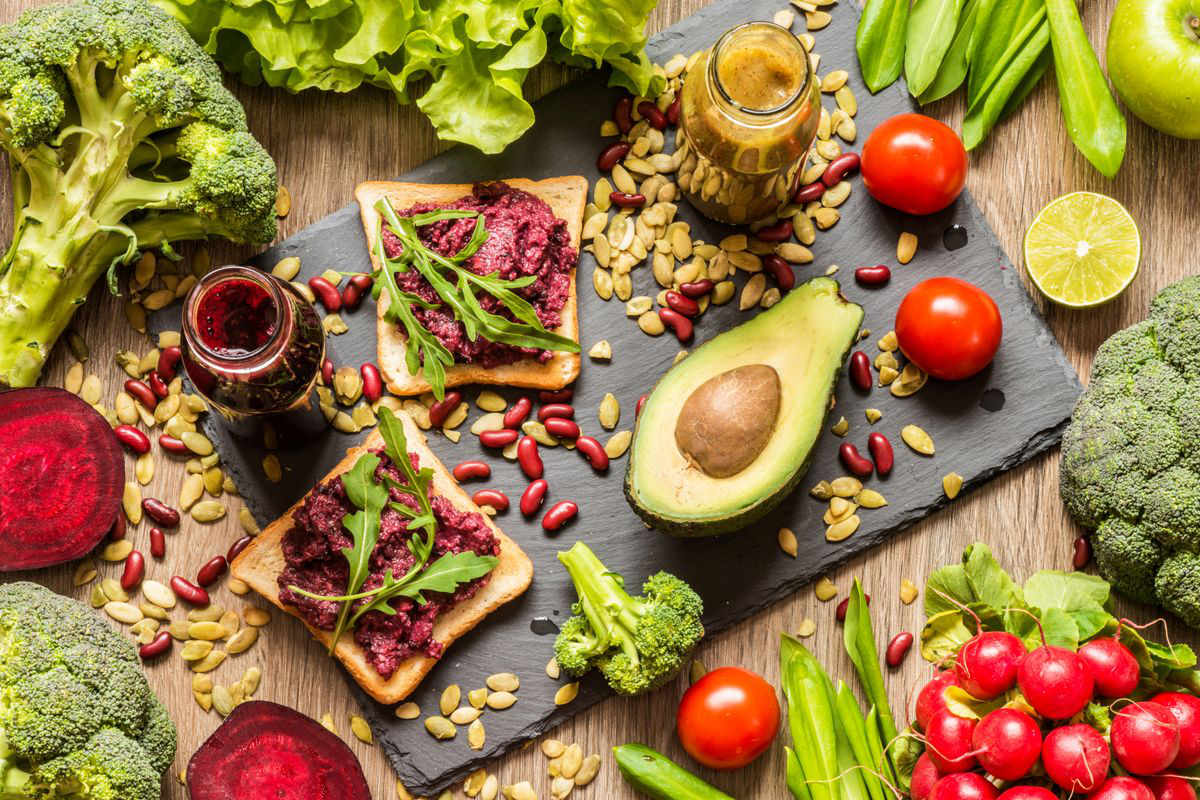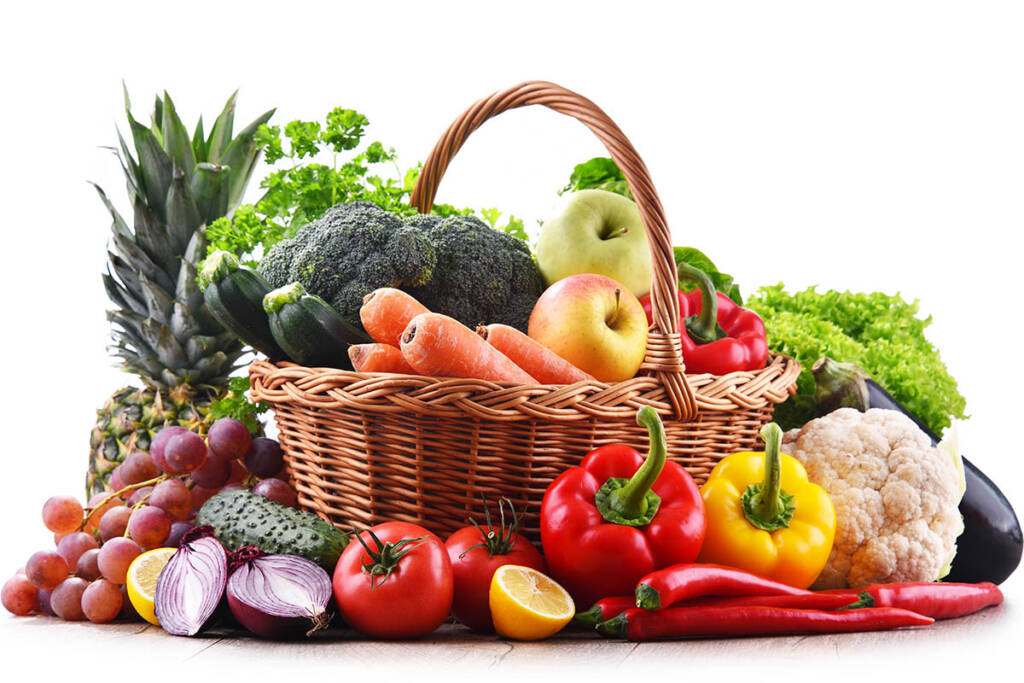Food
Vegan diet: useful for the body and for the environment, here’s everything you need to know

Let's find out everything there is to know about the vegan diet: the benefits, contraindications, what to eat and how it differs from the vegetarian diet.
There are several reasons why a person may decide to follow a vegan diet: ethical, religious, environmental reasons, of course, but also simple taste or the desire to find a balanced diet based above all on fruit, vegetables and carbohydrates.
For the uninitiated, a vegan diet is mainly based on elements of natural origin, while all products of animal origin, such as meat and fish, should be excluded. Furthermore, vegans also do not eat products derived from animal origin such as cheese, eggs, milk, etc…
From an ethical point of view, vegans believe that the use of animals for food is immoral and that animals have the right to be respected and treated with humanity. From an environmental point of view, intensive animal farming is a major cause of deforestation , desertification and greenhouse gas emissions . For this reason, by choosing not to consume animal products, you can help reduce your environmental impact.
In addition to this, according to studies, there are a number of health benefits associated with this diet, including reduced risk of cardiovascular disease. Additionally, the NIH says these diets may lower the risk of developing high blood pressure, diabetes and some cancers. In short, are you ready to find out more? So let's find out all about veganism!
What is the vegan diet: an example of a menu
Going into more detail, as mentioned, this particular diet prohibits the consumption of animal elements or of animal origin, therefore a vegan does not eat : meat and all its derivatives, fish, milk, cheese, eggs, honey and butter.
A balanced vegan diet menu will include fruit, vegetables, cereals, legumes, oilseeds, dried fruit and carbohydrates. There is also a large presence of foods such as soy, seitan , tofu and tempeh , which often become the so-called meat substitutes and are candidates to become the protagonists of many delicious recipes. By now the vegan diet has become very popular all over the world and for this reason there are more and more products created specifically to replace meat and derivatives. From hamburgers to becon to cheese and honey, vegan alternatives are now widespread in all supermarkets.
Difference between a vegan diet and a vegetarian diet
The main difference between vegetarian and vegan diets is that the former excludes meat, but allows the use of products derived from animals. The second one isn't. In other words, vegetarians can eat foods like milk, cheese, eggs and butter , because they don't involve the death of the animal. In the vegan diet, on the other hand, even these foods are forbidden because intensive breeding and therefore harmful to the environment also extends to products of animal origin.
Vegan diet: the benefits and cons
Although it is a diet that is still viewed with suspicion by many, this diet actually brings with it numerous benefits. First of all, if you choose to adopt this type of diet, you are also choosing a diet that decreases the risks of obesity, hypertension, type two diabetes mellitus and even cardiovascular disease . It can also help prevent certain types of cancer. In fact, some studies have shown that vegan diets can help prevent breast, colon and prostate cancer. Being rich in vitamins and minerals, they can help improve skin health.
Furthermore, eating only foods of natural origin brings our body a high intake of fiber and antioxidants , thanks to the intake of lots of seasonal fruit and vegetables. The vegan diet is also useful for managing cholesterol and for minimizing saturated and transsaturated fats and replacing them with unsaturated fats. Replacing butter with olive oil, avocados, and nuts is one way to do this.
On the contrary, there are no real contraindications on the vegan diet: in fact, no particular risks have been highlighted, except for some cases of deficiency anemia , since iron is more easily absorbed from meat-based products than from plant products . This causes tiredness and can be more effectively corrected with supplements.
An unbalanced vegan diet can also lead to a deficiency in vitamins B12 , calcium, omega-3s and proteins. It is important that those who choose to follow a vegan diet make sure they get these nutrients through plant sources or supplements. In any case, if you want to try to get closer to this world, we advise you to consult a nutritionist .
Vegan diet for weight loss
The vegan slimming diet is simply a vegan diet, however designed to guarantee weight loss for those who adopt it. In this case, the most common mistake is to think that eating only fruit and vegetables and other low – fat foods is enough to lose weight. But in reality… nothing could be more wrong!
In fact, the best thing to do is to give life to a balanced diet, also rich in proteins and fats. For this reason, as always, the best advice we can give you is to create a menu followed by a doctor or dietician, so as to be able to draw up a list of foods and recipes suitable for your body and which will guarantee you to lose weight while keeping your body healthy.
An environmental choice
According to IOC animal rights member and college student Reilly Park , choosing a plant-based diet is one of the most significant influences individuals can have on the environment.

« Animal farming requires massive amounts of water, feed and transportation resources to meet the high demands on human beings' dietary patterns – which, as demand increases and the environment is consistently depleted, which is unsustainable, there is no doubt ,” Park said. « Cows produce 100 km of methane every year, which is the equivalent of a burning car 235 liters of gas. With that fact in mind, imagine how much less negative impact choosing plants over animals has on the environment with each meal .
According to The Water Footprint Network , the environmental costs of high-impact plant productions are even less than those associated with meat products. " Practicing veganism is about more than our taste buds ," Park said. " When you choose to eat plants, you are choosing to protect the planet's water, air, soil, animals and your health."
Riproduzione riservata © - WT











